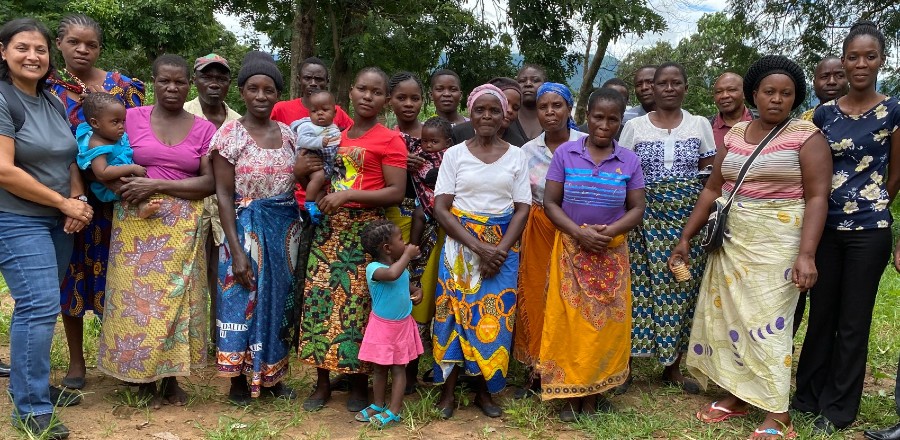Green Gown nod for climate justice study

Ground-breaking climate research at Glasgow Caledonian University has been highly commended at this year’s Green Gown Awards.
The nod is in recognition of the work carried out by the University's Mary Robinson Centre for Climate Justice, which is focused on the disproportionate impacts of climate change on particular groups in society.
The Centre was ‘Highly Commended’ in the Diversity, Equity and Inclusion in Sustainability category for a recent research project which investigated the impacts of climate change on gender-based violence and mental health. The project put the spotlight on the lived experiences of rural women in Malawi, and delivered evidence directly to policy-makers to inform future policy at the national level that would help address a growing mental health and gender-based violence crisis in the studied areas.
The Green Gown Awards recognise the exceptional sustainability initiatives being undertaken by universities and colleges across the world.
GCU's Mary Robinson Centre for Climate Justice raises awareness of how inequalities affect the ability of the poorest and most vulnerable to adapt to climate change impacts, and works with local communities to co-produce climate knowledge and build resilience. Initially established through a partnership with the Mary Robinson Foundation, the Centre addresses the overarching objective of the United Nations Sustainable Development Goals to 'Leave no one behind'.
Centre Director, Professor Tahseen Jafry, said: “I am proud the centre’s research has been recognised by an awards body that stands for sustainability.
“Climate change is exacerbating issues of mental health and gender-based violence in countries all over the world, but more research is needed in countries like Malawi, that are particularly vulnerable to the impacts of climate change, to build the evidence base and overcome the global lack of knowledge and data on the impact that climate change is having on mental health and gender-based violence. This will help to achieve climate justice for those who have contributed least to climate change but are bearing the brunt of the crisis.
“Globally, there is now great impetus to look at these issues and use it to strengthen the resolution that was announced by the UN General Assembly in July 2022, whereby they declared access to clean and healthy environment a universal human right. This is such a positive development and I hope that our research can play a vital role in underpinning the much-needed work that is required to protect those on the front line of the climate crisis.”
